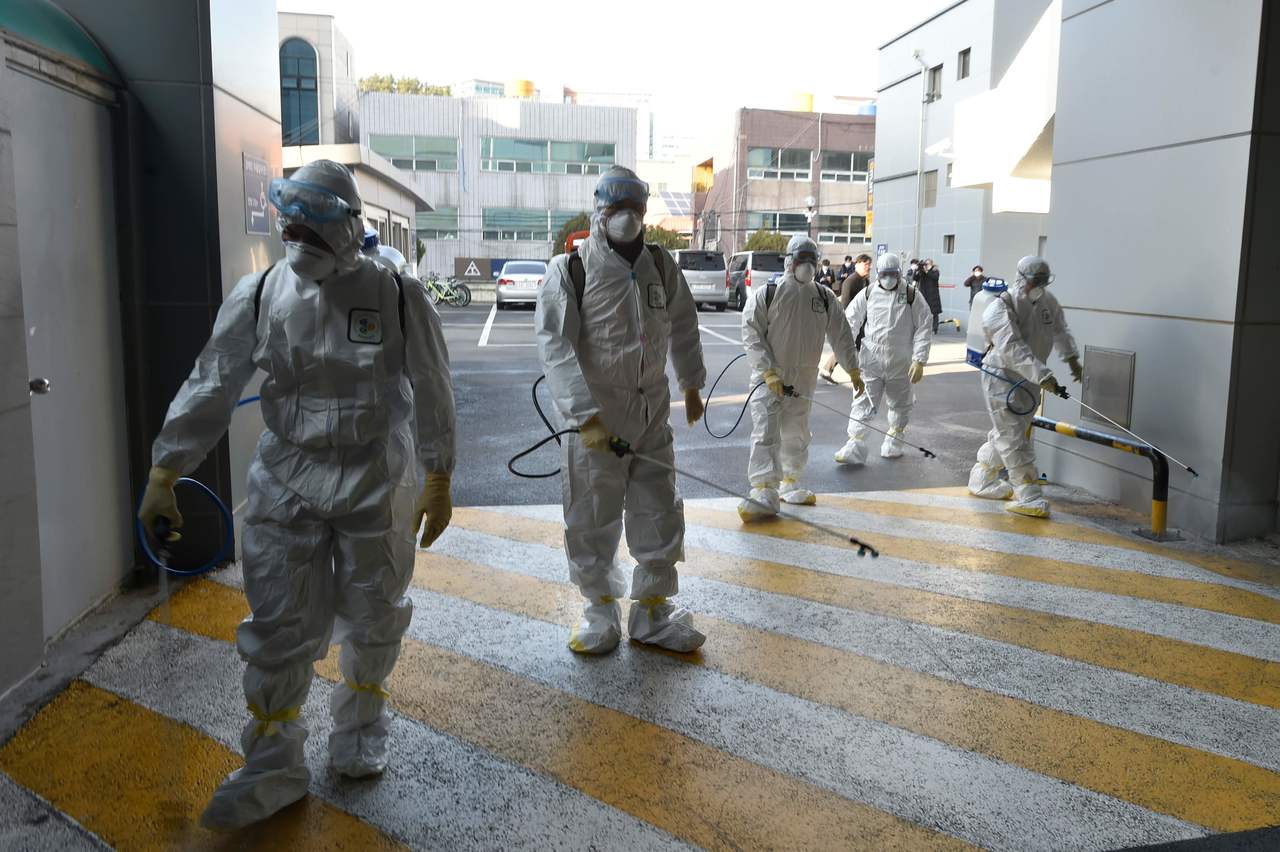Coronavirus: Opaque South Korean sect draws scrutiny with spike in infections
Sign up now: Get insights on Asia's fast-moving developments

South Korean health officials wearing protective suit and spraying disinfectant in front of the Daegu branch of the Shincheonji Church of Jesus in South Korea, on Feb 19, 2020.
PHOTO: AFP/DAEGU METROPOLITAN CITY NAMGU
SEOUL (BLOOMBERG) - An obscure religious sect in South Korea is drawing global attention after being linked to a sudden spike in coronavirus infections.
The group, called the Shincheonji - which translates to "new heaven and land" - accounted for at least 122 confirmed cases of the virus in South Korea on Friday (Feb 21), out of a total of more than 200. That represents a sixfold increase from earlier this week, when a person known to have joined a service of the sect in Daegu, a city of 2.5 million residents, was infected.
During worship, Shincheonji members sit on the floor, elbow to elbow and knee to knee, in services that typically last one to two hours. South Korea's health authorities say such close proximity for long periods may have caused the infection to spread rapidly among the congregation.
The country's Centres for Disease Control and Prevention said on Friday that it is examining the ties between branches of the sect in South Korea and in areas of China, including Hubei province.
The religious movement was founded in 1984 by Mr Lee Man-hee, now 88, who claims to be an immortal prophet sent by Jesus Christ to prepare for the end of the world. It counts about 300,000 followers at some 600 locations in 29 countries, stretching as far as South Africa, the Congo and Costa Rica. In China, it has seven churches, including in Beijing, Tianjin and Shanghai.
The group's website previously said it opened a church last year in Wuhan, the centre of the virus outbreak, though that detail can no longer be found on the site.
Wider Investigation
Korea's CDC initially advised 1,001 people thought to have attended services with the patient known as No. 31 to refrain from leaving home on Thursday. The CDC is widening its investigation and on Friday said it has obtained a list of 9,300 members of the sect and so far confirmed that 544 had symptoms for the virus.
The Seoul Metropolitan Government said it will shut down all four Shincheonji branches in the city in a pre-emptive move to prevent further contamination in the capital area, home to almost half of South Korea's 51.8 million population.
Mr Hong Yeun-ho, who has been leading an anti-Shincheonji campaign after his daughter joined the sect for two years, said hundreds of the church members sit on the floor in a tightly woven line.
"Only those who have completed a six-month education on the sect and formally enrolled as members can attend their services," Mr Hong said.
All members must register their fingerprint on a scanner to enter an office building where the services are held, a process Mr Hong said makes them feel chosen and proud. Attendants remain seated on their knees throughout the service, chanting "amen" and singing en mass, he said.
The sect's founder claims to have royal bloodline, even though he was born into a poor farming family. A guiding star led him to meet "a spiritual being from heaven", the sect says.
"Lee later found out that he himself was the messenger sent from above to pass on the complete Revelations to the churches on the land," the sect said on its website.
Numerous calls to Shincheonji - whose full name is Church of Jesus, the Temple of the Tabernacle of the Testimony - went unanswered.
On its website, the group reacted to reports about the spread of the virus.
"Media are reporting as if we're the main culprit of the virus spread, calling the way we do the service unique, whereas the reality is that we have to sit on the floor only to accommodate as many people as possible in a confined space," according to a statement.


